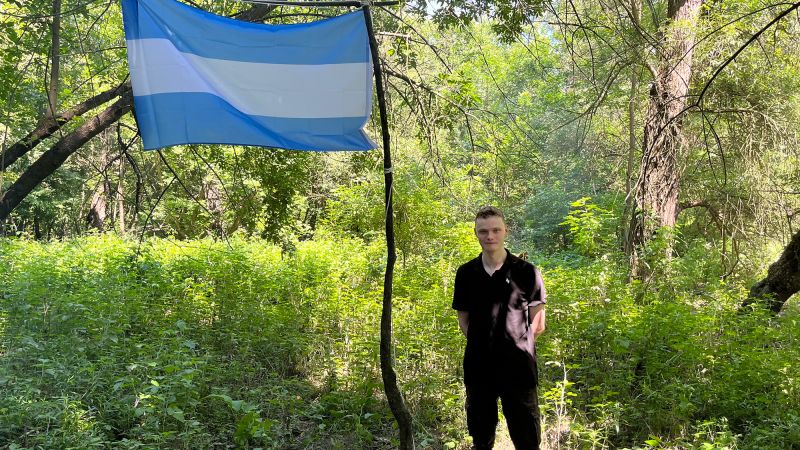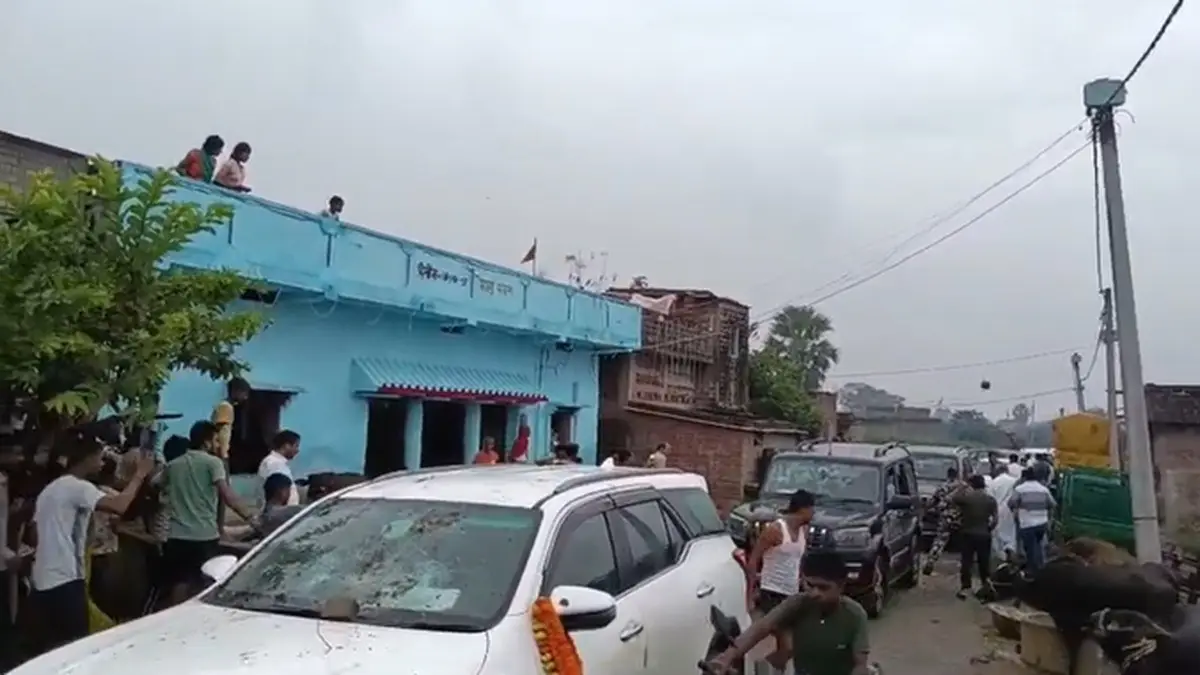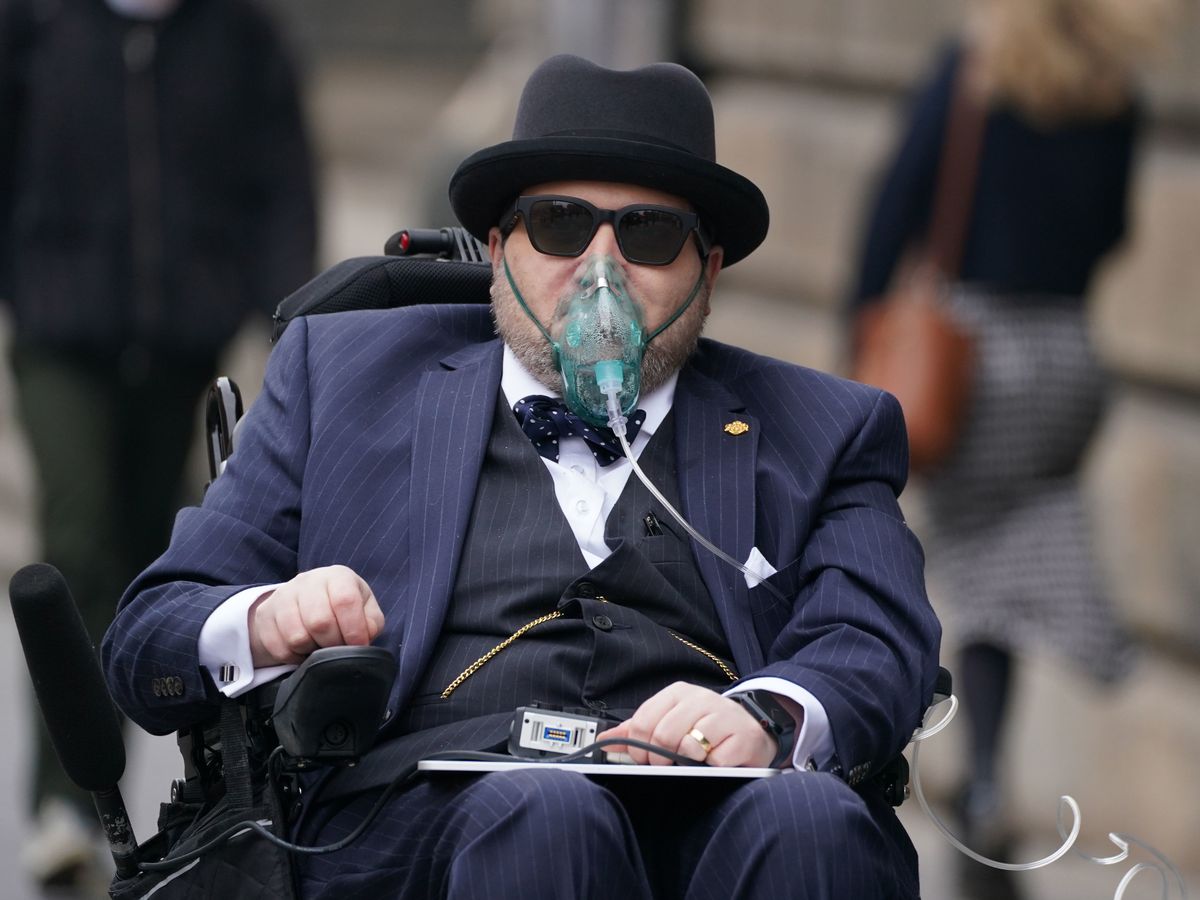Copyright Cable News Network

“Terra nullius.” Under international law, this Latin phrase meaning “nobody’s land” describes an area of land unclaimed by any sovereign nation-state. In an age where nearly every inch of the world’s landmass has been mapped, examples of terra nullius are exceedingly rare. Bir Tawil, for instance — a desolate parcel of desert on the Egyptian-Sudanese border. Egypt and Sudan have competing maps of the border, but because of the crisscrossing of those boundaries, Bir Tawil would belong to whichever nation relinquished its claim on a larger, more desirable area. Each country insists that Bir Tawil belongs to the other. This unusual status has attracted self-styled nationbuilders — so- called “micronationalists” — hoping to create their own “countries.” One notable attempt was by Jeremiah Heaton, an American who in 2014 founded the unrecognized “Kingdom of North Sudan” in Bir Tawil. His motivation, he told CNN’s Don Lemon at the time, was to make his daughter a real-life “princess.” Other micronationalists have turned to Europe. Along the Croatian-Serbian border, a drawn-out dispute along the River Danube has resulted in claims of terra nullius around at least four small pockets of land. The boundary dispute began in 1947, after World War II, and flared again in the 1990s when attempts were made to restore the historical separation between Serbia and Croatia, which had spent most of the 20th century as subdivisions of Yugoslavia. Historically, the two territories were separated by the Danube. Serbia claims its border runs down the center of the contemporary river; Croatia claims a different border, based on 19th-century land ownership maps, when the river ran a different course. These differing border definitions mean Croatia lays claim to land on the eastern bank of the Danube — territory Serbia considers its own. But the river’s former course means there are several pockets on the western bank that would belong to Serbia under those older maps. As with Bir Tawil, these western pockets of land would go to whichever country loses the larger territorial dispute. In practice, that means neither Croatia nor Serbia claims them, although officials say that does not mean they have been forsaken. Land considered terra nullius can be claimed by occupation under international law. It’s a “murky legal category,” explains Noam Leshem, an associate professor of political and cultural geography at the UK’s Durham University and author of “Edges of Care: Living and Dying in No Man’s Land.” “The ability to claim territory is fundamentally a question of power, and that power is derived either from law or by the power of might, or by the combination of the two.” In 2015, Czech politician Vit Jedlička claimed a seven-square-kilometer patch in the disputed Danube area, named Gornja Siga, as the “Free Republic of Liberland.” His micronation vision is staunchly libertarian and his ambition, he says, is “a global revolution.” The land is now inaccessible to the public, having been fenced off by Croatian authorities. In 2023, British YouTuber Niko Omilano made an attempt to enter what he termed “the banned country” to mark the eighth anniversary of Jedlička’s experiment. “It’s like the homestead principle” in the American Wild West, says James Riding, a senior lecturer in cultural geography at the UK’s Newcastle University, who has co-written an academic paper about Jedlička’s political experiment. “If you continue to spread into new territory, there’s not a lot to stop you from claiming that territory as your own.” While terra nullius can inspire these kinds of frontier fantasies, it’s important to remember these so-called “no man’s lands” have long and complex histories and are “more than geographical oddities,” says Riding. Attempts to claim them “can and do often have political motivations or completely disregard the cultural history of the landscapes they claim land in,” he says. ‘Free Republic of Verdis’ After learning about Jedlička’s claims along the same stretch of river, 20-year-old Daniel Jackson was inspired to make his own experiment in sovereignty and statehood, although with a very different mission than Jedlička’s. Jackson, a dual British and Australian citizen, is the self-declared president of the “Free Republic of Verdis,” or Pocket 3, as it’s labeled on international maps. As such, this would make him the youngest national president in the world. The microstate he lays claim to is located on the sandy shores of an uninhabited, 124-acre patch of land along the Danube. Aside from forest and scrubby beachland, there’s not a lot there. The territory claimed by Jackson is, at roughly half a square kilometer, just a fraction larger than Vatican City, the smallest country in the world. Jackson, who says he’s attracted some 400 Verdisian “citizens” to his cause, believes his fledgling “republic” can become a sovereign nation-state with international recognition. But days after the Verdis team planted their self-designed blue and white striped flag in the sands of Pocket 3 in 2023, Jackson says he endured his first “national” crisis when Croatian police arrived and deported him. Croatia’s foreign ministry told CNN it classifies Jackson’s occupation of the land — and the Liberland project — as “provocative actions without any basis in law.” It said it was carrying out its obligations to guard its external border and that of Europe’s multinational Schengen Area. It also gave short shrift to the concept of terra nullius. While the boundaries along the Danube may be in dispute, it said, both Croatia and Serbia “share an understanding of and respect for a fundamental principle of international law: the fact that a pending delimitation does not render any space a terra nullius (“no man’s land”) open to occupation by a third party.” The Serbian government has also been contacted for comment by CNN. How to build a country Jackson remains unbowed by his removal. “I love what I do,” Jackson tells CNN Travel from his “exile” in the United Kingdom. “I have less experience than other presidents, but I’m at an age where I’m learning quickly. I want to pave the way for my generation to become more involved in world politics.” Before they tried to occupy Pocket 3, Jackson and his aspiring citizens say they carried out extensive research in local archives, on both sides of the disputed border. He says they delved into the historical maps on which Croatia bases its border, and found several modern charts produced by Croatian government departments that follow the same boundary. As far as they could tell, Pocket 3 had remained uninhabited throughout recorded history. Satisfied that the territory was theirs for the taking, the self-declared republic began establishing its foundations from afar. Jackson was elected president by his fellow Verdisians in May 2019 and a government was formed. Officials and ambassadors were appointed, including ministers of foreign affairs, infrastructure and defense. They designed a flag — a single white horizontal stripe sandwiched between two light blue ones — and coat of arms. They issued passports and drafted “basic laws” to govern the nation, although none of this is internationally recognized. “There were many reasons why we wanted to start Verdis,” Jackson tells CNN Travel. “People came together to do something unique, to be heard. Creating a country provides opportunities to test new forms of governance and voting systems. We want to serve as a neutral zone, where world leaders can discuss their disputes.” He adds that he wants Verdis to be a “humanitarian hub.” In July and September 2023, Jackson delivered aid to Ukraine under the flag of Verdis, through the “Verdis Red Cross,” a self-styled movement unaffiliated with the International Red Cross. While Jackson himself has no ties to the region, he tells CNN that he sought help and support from locals on both sides of the river in the project — such as boat captains, river guides and legal advisers. “It’s important to have ethnic Croats and Serbs” supporting the project, says Domagoj Budetić, Verdis’ “minister of foreign affairs,” a Croatian who lives in the nearby city of Osijek. “If anything, it’s expected due to our geographical position.” Lower application costs and fast-track “citizenships” are offered to those who can prove their connection to the region through descent. Jackson says around 65% of Verdis’ “citizens” are ethnic Serbs and Croats. While his vision of Verdis as a neutral state where nations broker peace treaties might sound fantastical, Jackson says he believes it offers Serbians and Croatians — who were at war a few decades ago — the chance for reconciliation. “Croats and Serbs had a million chances for reconciliation,” says Budetić. “The war in the ‘90s was far from the only one the two nations had. Croats and Serbs, for much of their history, fought because of their history. Verdis has none. A clean slate where things can be done correctly since day one.” One of Verdis’ most high-profile supporters is Luke Black, a Serbian singer-songwriter who represented Serbia in the Eurovision Song Contest 2023. He tells CNN that, as his homeland is one of the youngest countries in the world, he thinks “it’s in the Serbian spirit to be welcoming to change and innovation. I especially appreciate youth-led initiatives that think outside the box.” While he admires the idea of unity that both Eurovision and Verdis share, he says “the Verdis dream is unique because it’s pure at heart.” Not just a micronation Jackson tells CNN that he is determined to achieve international recognition for Verdis. “Lots of people found micronations to make a statement,” he says. “We’re trying to build a state. We refer to ourselves as a country or a sovereign state for political reasons. We see a big difference between someone claiming their backyard and us claiming terra nullius.” The Montevideo Convention, the 1933 international law defining sovereign nation-states, establishes four primary criteria that countries must fulfil: having a permanent population, a defined territory, a functioning government and the capacity to enter into relations with other states. While Croatia and Serbia may disagree, Jackson says Verdis met three of the four criteria by forming a government and claiming Pocket 3. Raising their flag on “Verdisian” shores and establishing a permanent population were to prove the biggest challenges. Throughout 2023, Jackson says, representatives of Verdis embarked on multiple “surveying” trips to the territory, where they camped out, mapped the land and planned more robust encampments for future expeditions. In October 2023, Jackson and his government raised the Verdisian flag with great ceremony, finally initiating what they said was the “settlement” phase of their nation-building project. A rotating schedule of “citizens” was set to visit over the following months to ensure a permanent Verdisian presence. Things didn’t go to plan. On October 12, the morning after Verdis made its claim on Pocket 3, he says Croatian police — who have de facto control over the western bank of the Danube, even if this doesn’t align with the official Croatian interpretation of the border — landed on the beach. “It was short-lived,” says Jackson, telling CNN Travel that police broke the camp apart and that settlers, including himself, were held for questioning. “We’ve been in exile ever since.” An exiled micronation Jackson hasn’t given up, though. “We’ve occasionally snuck flags onto Verdis when the river has been high enough, as a sign we’re still committed,” says Jackson. “We continue to govern from exile. We’ll constantly push to be back on the land and be prepared to be back on the land.” Noam Leshem, the Durham University professor, says Jackson’s claim to the territory is ultimately unlikely to succeed, especially in the face of Croatian police deployments. “I think that’s a classic example of might is right,” he says. “On a completely pragmatic political level, I would say that this 20-year-old kid is facing significant hurdles which, you know, nations comprising millions of people, like Kurds or Palestinians, have yet to be able to surmount,” says Leshem. “However, I think that does not mean that we shouldn’t take him seriously, him and others like him.” It’s important to consider what drives people to seek this kind of “sovereign fantasy,” adds Leshem, and what inspires others to follow them. “It begins to illuminate the crisis that many around the world are feeling, the sense that their own ability to shape their future within existing political frameworks is increasingly diminished.” James Riding, the senior lecturer at Newcastle University, notes the project particularly resonates in the Balkans. “There’s been huge protests recently in Serbia, and there’s a feeling of stagnation following decades of political inertia.” Supporting a vision such as Verdis, he says, can be “a way to imagine yourself out of the country that you are in.” The “Free Republic of Verdis” has also staged protests outside the Croatian embassy in London. Jackson says Verdis now has 900 e-residents, as well as its 400 “citizens,” with 700 signing up after recent media coverage. “I still believe that sooner or later we will be back on the land and Croatia will have to respect international law, including Verdis’ territorial integrity,” he told CNN Travel. “We will never give up on our goal. We hope to have positive relations with Croatia in the future. We want to work with them.” 



